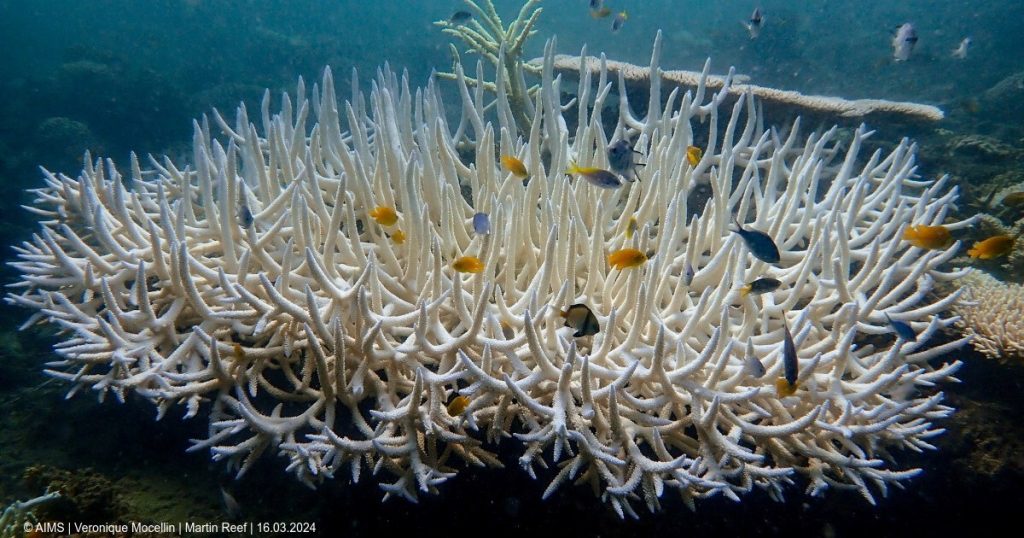A mass bleaching event caused by high ocean temperatures is posing a significant threat to coral reefs across the world. This is the fourth such event to occur, leading the National Oceanic and Atmospheric Administration to declare it a global crisis. Coral reefs are vital ecosystems that support a diverse array of marine life, and their decline could have widespread ecological consequences. The rise in ocean temperatures is believed to be linked to climate change, highlighting the urgent need for global action to address this issue.
The bleaching of coral reefs occurs when they become stressed by factors such as high temperatures, pollution, or changes in water chemistry. This stress causes the corals to expel the algae living in their tissues, leading to their white, bleached appearance. While corals can recover from bleaching events if conditions improve, prolonged or severe bleaching can result in their death. The current mass bleaching event is particularly concerning due to its global scale and the increasing frequency of such events in recent years.
The impact of coral reef decline extends beyond just the loss of marine biodiversity. Coral reefs provide valuable ecosystem services, such as coastal protection, fisheries support, and tourism revenue. The decline of these ecosystems could have far-reaching economic and social implications for communities that depend on them. Additionally, coral reefs play a critical role in maintaining the health of the world’s oceans, meaning their decline could have detrimental effects on the broader marine environment.
Efforts to address the threats facing coral reefs include measures to reduce greenhouse gas emissions, improve water quality, and establish protected marine areas. These actions are crucial in ensuring the long-term survival of coral reefs and the ecosystems they support. However, the scale of the current crisis requires coordinated global action to address the underlying causes of coral reef decline. This will involve collaboration between governments, scientists, conservation organizations, and the private sector to implement effective solutions.
In light of the ongoing mass bleaching event and the broader threats facing coral reefs, it is clear that urgent action is needed to protect these valuable ecosystems. The declaration of this event as a global crisis by the National Oceanic and Atmospheric Administration highlights the seriousness of the situation and the need for immediate intervention. By addressing the root causes of coral reef decline and implementing conservation measures, we can work towards ensuring the future health and resilience of these vital ecosystems. The time to act is now to safeguard the world’s coral reefs for future generations.


